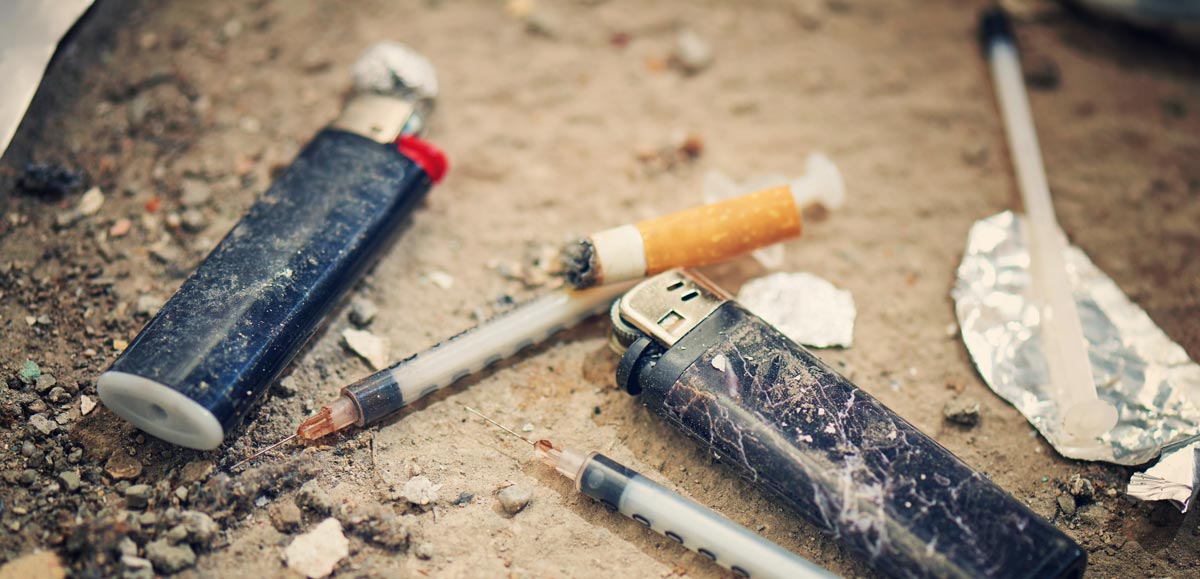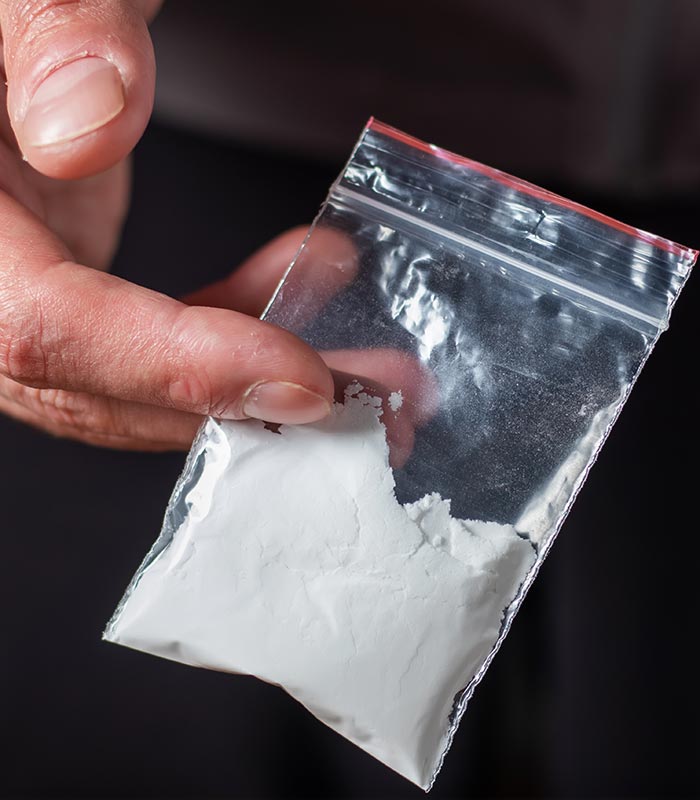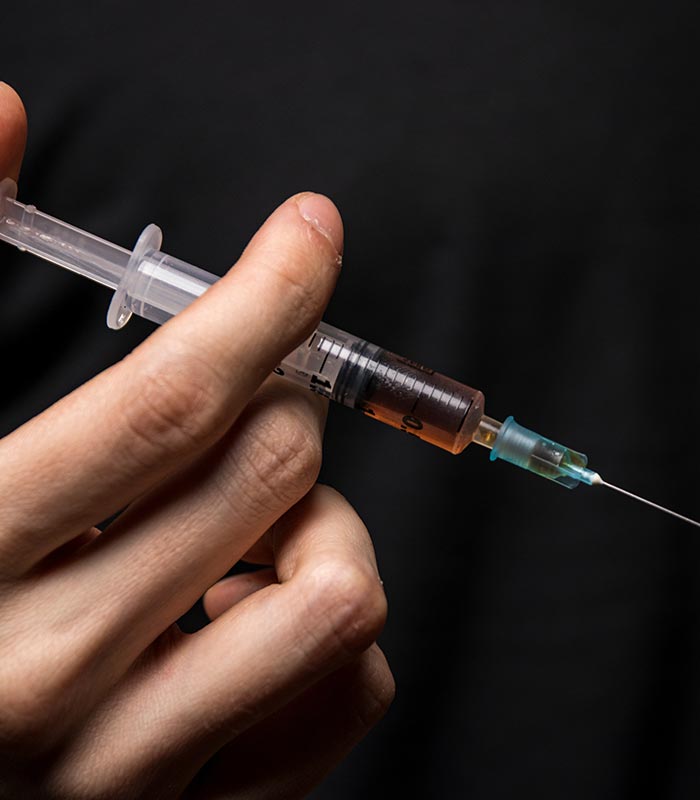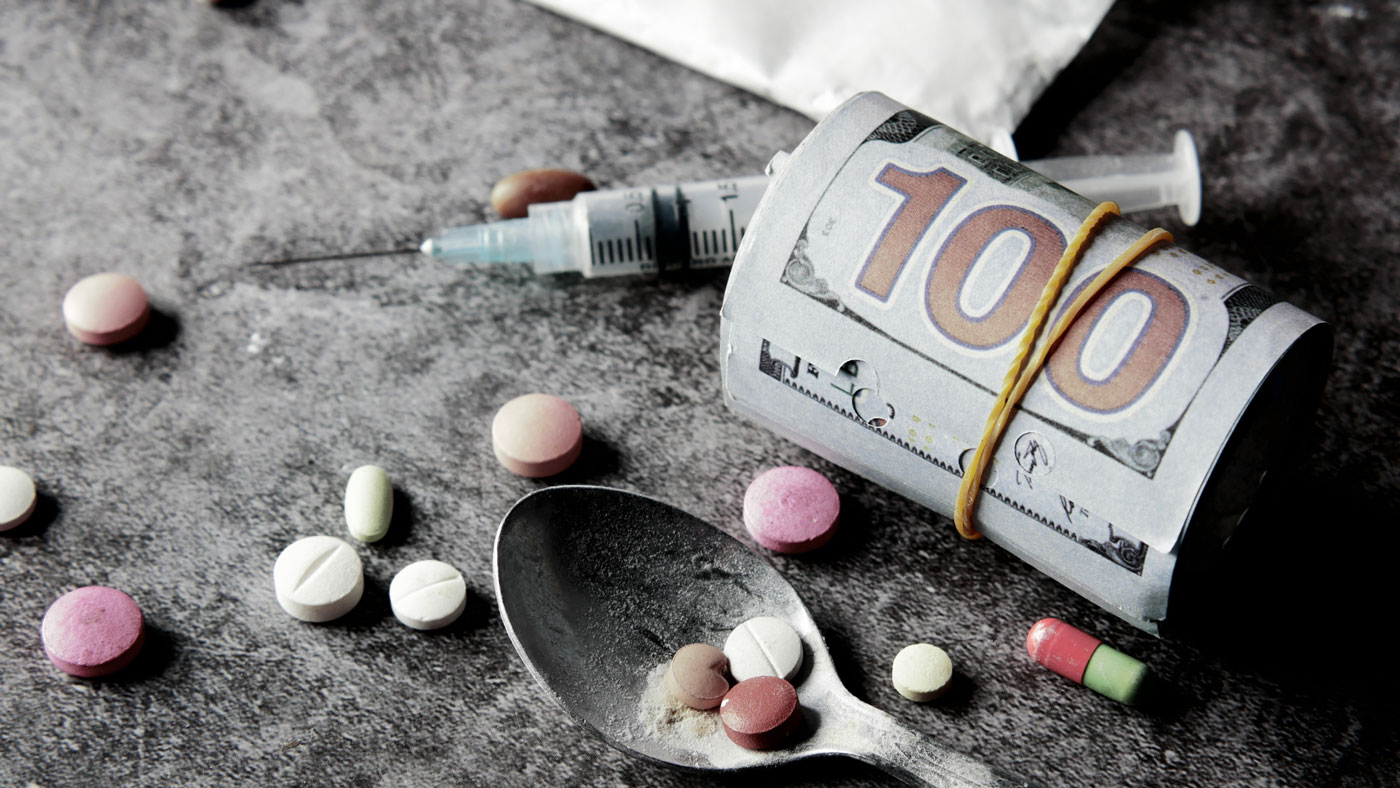Heroin is an illegal and powerful opioid drug that’s derived from morphine. It produces an intense high, leading to widespread misuse and addiction that can have devastating effects.
There Is A Better Way To Live. It's Time To Get The Help You Deserve.
Statistics on Heroin Use, Misuse, and Addiction
According to NIDA, about 0.4% of individuals, or 1.1 million people aged 12 and older reported using heroin in the past 12 months.[3] The 2021 National Survey on Drug Use and Health reported that among people aged 12 or older in 2021, an estimated 0.4% had a heroin use disorder in the past 12 months.[4]
It’s a widely abused drug, with the Substance Abuse and Mental Health Services Administration (SAMHSA) reporting that in 2020, approximately 169,000 individuals aged 12 or older initiated heroin use in the past year.[5]
Furthermore, NIDA reported that in 2021, there were 9,173 overdose deaths involving heroin in the US.[6]

Effects Of
Heroin Abuse
Heroin carries significant risks. In the short term, heroin can lead to a coma or overdose. In the long term, heroin can cause:
- Addiction
- Tolerance
- Infectious diseases like HIV or hepatitis from sharing needles
- Collapsed veins from injection
- Gastrointestinal issues like constipation
- Heart and respiratory issues
- Mental health issues like depression and anxiety
Can You Overdose on Heroin?
If someone takes more heroin than the body can handle, an overdose can occur. Heroin is a powerful opioid that can depress the central nervous system with life-threatening complications. The risk of overdose is high because of the potency of illicitly produced heroin.
Signs and Symptoms of Heroin Overdose
The signs and symptoms of a heroin overdose may include:
- Slow or shallow breathing
- Cyanosis, or blue lips and nails from lack of oxygen
- Confusion or disorientation
- Lack of responsiveness
- Pinpoint pupils
- Weak pulse
- Loss of consciousness
What to do if you suspect someone is overdosing on heroin:
A heroin overdose is a medical emergency. Call 911 immediately and administer naloxone, which can rapidly reverse the effects of an opioid overdose while you wait for emergency medical services. Wait with the person until the medical team arrives.
Dangers of Long-Term Heroin Use
Long-term heroin abuse can have severe consequences for physical and mental health. Some of the dangers include:
- Physical health problems involving the vital organs like the liver, kidneys, and cardiovascular system
- Tolerance, which means the body adjusted to the drug and requires higher doses
- Drug dependence, which can produce withdrawal symptoms when the drug is reduced or stopped
- Addiction
- Mental health disorders like depression or anxiety
- Respiratory problems like bronchitis and pneumonia
- Cognitive impairment and effects to memory and decision making
- An increased risk of overdose
- Nutritional deficiencies
- Collapsed veins with injection
- Hormonal imbalances
Mixing Heroin with Other Drugs
Mixing heroin with other drugs, including alcohol, prescription medications, or illicit substances, can increase the risks and dangers associated with its use. combining heroin with other central nervous system depressants like alcohol increases the risk of respiratory depression and overdose, but heroin with stimulants like methamphetamine can put excessive strain on the cardiovascular system.
Interactions between different drugs can produce unpredictable effects, making it difficult for people to anticipate the effects on their physical and mental wellbeing.
Heroin Addiction And Abuse
A heroin addiction is an opioid use disorder (OUD) according to the Diagnostic and Statistical Manual of Mental Disorders, Fifth Edition (DSM-5). At least two of the following must occur within a 12-month period for an OUD:
- Taking opioids in larger amounts or over a longer period than intended
- A persistent desire or unsuccessful efforts to cut down or control opioid use
- Spending a great deal of time obtaining, using, or recovering from opioids
- Craving opioids
- Failing to fulfill major obligations at work, home, or school because of opioids
- Continuing opioid use despite recurrent interpersonal problems
- Giving up important activities because of opioid use
- Using opioids in dangerous situations
- Continuing opioid use despite physical or psychological problems
- Tolerance
- Withdrawal
Is Heroin Addictive?
Heroin is a highly addictive opioid drug that interacts with the opioid receptors in the brain and body, producing powerful and fast-acting euphoria. The addictive properties of heroin are due to its effects on the brain’s reward system, which reinforces its use.
How Addictive is Heroin?
The potential for dependence and addiction with heroin is significant because of its effects on the brain and the release of dopamine, a pleasurable neurotransmitter that produces intense feelings of relaxation and euphoria.
Signs of Addiction to Heroin
Recognizing the heroin addiction symptoms is crucial for early intervention and getting help. Here are some of the common signs of heroin addiction:
- Pinpoint pupils
- Poor hygiene and appearance
- Social withdrawal
- Giving up on hobbies or interests
- Track marks or drug paraphernalia
- Financial problems
- Lying and secrecy
- Mood swings
- Depression or anxiety
- Irritability
- Poor work or academic performance
- Frequent absences
- Weight loss
- Respiratory problems
Heroin Addiction And
Mental Health
Heroin can dramatically impact mental health, including cognitive function, mood regulation, and overall wellbeing. It produces an intense euphoria, which is followed by a brain fog and sedation. Heroin use is also associated with extreme mood swings and an increased risk of mental health disorders like depression, anxiety, hallucinations, delusions, and psychosis.


Cutting Agents Used For Heroin
Heroin sold on the street may be cut – or adulterated – with other substances to increase profits. Some of the common cutting agents include talcum powder, flour, caffeine, quinine, benzodiazepines, or synthetic opioids like fentanyl. Heroin may also be mixed with cocaine in a combination known as a “speedball.”
Heroin Addiction Treatment
Heroin addiction treatment is comprehensive and individualized. The cost, length, and process of drug addiction treatment depends on the individual’s substance use history, mental health, and treatment goals.
Heroin Addiction Treatment Levels of Care
Heroin addiction is a complex condition that often requires comprehensive and tailored treatment to address withdrawal, physical dependence, and the underlying causes of addiction. Treatment can be provided through multiple levels of care tailored to the individual, which may include:
- Medical detox: Detox is often the initial phase of treatment to manage withdrawal symptoms and provide medically supervised support to make the experience as safe and comfortable as possible.
- Inpatient treatment: Inpatient heroin addiction treatment offers 24/7 care and support in a structured environment. This may include therapy, counseling, and other treatments to address the psychological aspects of addiction.
- Outpatient: Outpatient treatment provides ongoing therapy and support in a less intensive setting. People can attend scheduled treatment sessions while managing their daily responsibilities to work, school, or family.
- Aftercare: After completing formal treatment, aftercare offers ongoing resources, counseling, and community connections to support long-term recovery.
Therapies Used in Heroin Addiction Treatment
Heroin addiction treatment typically involves a combination of behavioral therapies, counseling, and support services designed to address the physical, psychological, and social aspects of addiction. Common therapies for heroin addiction treatment may include:
- Cognitive behavioral therapy
- Somatic experiencing
- Experiential therapy
- Nutritional counseling
- Group therapy
- Eye movement desensitization and reprocessing (EMDR) therapy
- Outdoor recreation
Co-Occurring Disorders
Co-occurring disorders refer to the presence of a substance use disorder and a mental health disorder. Heroin addiction often co-occurs with mental health conditions like depression, anxiety, post-traumatic stress disorder (PTSD), and bipolar disorder. For treatment to be successful with co-occurring disorders, both conditions – and their influence on one another – must be treated simultaneously.
How to Find Heroin Addiction Treatment in Orange County
If you or a loved one is ready to take the next step in heroin addiction treatment, you have several options to find a treatment center near you. The best option is to speak with your insurance provider to see if there are specific approved providers or modalities. You can also find help through the Behavioral Health Services Locator tool from SAMHSA for heroin rehab near me.
Once you find some treatment options, make sure to read reviews, speak with others in peer support groups, and get recommendations to do your due diligence.
Learn More About Our Programs
Heroin Detox And Withdrawal Management
Heroin withdrawal is not usually life threatening, but it can be uncomfortable and intense. People may be prone to relapse to relieve their discomfort, so a heroin detox center is often the first step in heroin treatment programs. This allows the drug to clean the body in a safe and comfortable setting to form a foundation for success with the rest of the treatment program.
Frequently Asked Questions
Can Heroin Addiction Be Cured?
No, there are heroin addiction cures, but it is treatable. Evidence-based interventions and individualized treatment programs can support long-term recovery and sobriety.
Can Heroin Use Cause Long-Term Health Consequences?
Yes, long-term heroin use can have severe health consequences, including strain on the major organ systems, cognitive impairment, and an increased risk of addiction and overdose.
What Does Heroin Look Like?
Heroin can come in many different forms, but it’s most often a fine white or brown powder. Black tar heroin is a black, sticky gel.
Sources
[1] 2021 NSDUH Annual National Report. SAMHSA.gov. (n.d.). Retrieved from https://www.samhsa.gov/data/report/2021-nsduh-annual-national-report on 2023, November 20.
[2] 2021 NSDUH Annual National Report. SAMHSA.gov. (n.d.). Retrieved from https://www.samhsa.gov/data/report/2021-nsduh-annual-national-report on 2023, November 20.
[3] 2021 NSDUH Annual National Report. SAMHSA.gov. (n.d.). Retrieved from https://www.samhsa.gov/data/report/2021-nsduh-annual-national-report on 2023, November 20.
[4] 2021 NSDUH Annual National Report. SAMHSA.gov. (n.d.). Retrieved from https://www.samhsa.gov/data/report/2021-nsduh-annual-national-report on 2023, November 20.
[5] Key substance use and mental health indicators in the United … – samhsa. (n.d.). Retrieved from https://www.samhsa.gov/data/sites/default/files/reports/rpt35325/NSDUHFFRPDFWHTMLFiles2020/2020NSDUHFFR1PDFW102121.pdf on 2023, November 20.
[6] U.S. Department of Health and Human Services. (2023b, September 25). Drug overdose death rates. National Institutes of Health. Retrieved from https://nida.nih.gov/research-topics/trends-statistics/overdose-death-rates on 2023, November 20.


